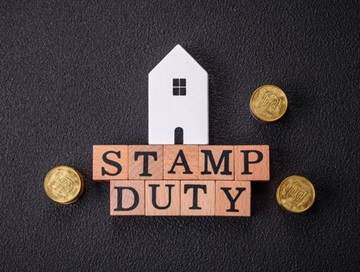There have been some pretty significant changes to the Residential Tenancies Act 1987 (RTA) in the last few months to help protect victims of family violence.
If you are renting a residential property and are the victim of family violence, you now have a number of options available to you to help you safely exit and manage the situation.
Ending a tenancy
Tenants experiencing family violence are now able to leave a tenancy agreement without going to court.
If you or your dependant are affected by family violence during a tenancy, you can now give the landlord or property manager seven days’ notice that you need to terminate your agreement and vacate the premises immediately.
In order to do this, you need to provide the landlord and property manager with a notice of termination on the grounds of family or domestic violence and an evidence document.
An evidence document can be in the form of:
- a Domestic Violence Order (includes Family Violence Restraining Order)
- a family court injunction or application for a family court injunction
- a copy of a prosecution notice or indictment detailing a charge relating to family violence having been committed against you or your dependant
- an official Consumer Protection Family violence report – Evidence form signed by a designated professional (doctor, psychologist, social worker, policy officer of person in charge of a women’s refuge).
Removing a perpetrator from the lease agreement
Victims of family violence now have the option to apply to a Court to have a perpetrator’s name removed from a lease agreement.
If the perpetrator is named on the tenancy agreement and you want to stay in the rental home, you can apply to the Court (using a Residential Tenancies Form 12) to have the perpetrator removed from the agreement.
The landlord, property manager and any co-tenants will find out about this hearing via a notice from the court.
Changing locks
Tenants experiencing family or domestic violence now have the option to change the locks without first seeking the landlord’s permission.
This can be actioned:
- after the perpetrator has been removed from the rental lease agreement.
- to prevent family violence that you suspect is likely to be committed against you or your dependant.
The tenant is required to pay for the lock change and give their landlord and property manager a copy of the new keys within seven days of having them changed.
Sort out disputes relating to property damage, unpaid rent or bonds
In the instance where the rental property has been damaged as a result of family domestic violence, or there is unpaid rent as a result of the perpetrator, then the tenant (whether vacating the property or remaining in it) can now apply for a court order from the Magistrate to assign liability for damages and outstanding rental payments to the perpetrator.
If there is no court order, then all tenants on the lease remain jointly responsible for damages and debt.
This provision can only be used if the tenancy was terminated because of family domestic violence circumstances.
Avoid being put on a tenancy database because of family domestic violence
Victims can now request the property manager remove their names retrospectively from a tenancy database if the listing was because of a family domestic violence issue.
Tenants can also avoid having their names added to the tenancy database in the first place for the same reason eg if the perpetrator damaged the rental (where the victim was named on the lease) and the property manager saw fit to note this on a tenancy database, only the perpetrator’s name could be listed.
For more information about the changes to the RTA for victims of family domestic violence, visit the Department of Mines, Industry Regulation and Safety website.
.tmb-imgwidgetm.jpg?sfvrsn=ce3479d7_1)

.tmb-rcarousel.jpg?sfvrsn=24ed8b20_1)






.tmb-rcarousel.png?sfvrsn=3619a769_1)
